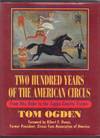
Sonnets from the Portuguese by Elizabeth Barrett Browning (NUMBERED, LIMITED THIRD EDITION, #10 OF 100)
by Elizabeth Barrett Browning
- Used
- Condition
- Very Good +
- Seller
-
Hendersonville, North Carolina, United States
Payment Methods Accepted
About This Item
Portland, Maine: Thomas B. Mosher; Printed by Smith and Sale, 1901. Numbered, Limited Third Edition. Stiff Wrapper Binding. Very Good +. 7" x 4.25" x 0.5. NUMBERED, LIMITED THIRD EDITION, 1901. This third Mosher edition is #10 of 100 copies. Old World Series. Printed on Japan vellum paper. Binding is a stiff wrapper board in an off white color with brown illustration and lettering on the cover and spine. All edges deckled, more prominently, however, at the foredge. Red and black title page with small black and white illustrative engraving. A silk, light blue bookmark ribbon is laid in. 68 pp. Cover shows some discoloration and light wear, yet leaves are beautifully and evenly toned and unmarked. A fascinating, delightful copy. Full refund if not satisfied. <br><br>ABOUT THE PAPER: Japanese vellum is a thick paper produced in Japan from native fibers that are of relatively great length. The paper has a very cloudy formation and is tough and durable. The color is usually cream or natural, and the paper is finished with a smooth surface. Japanese vellum is suitable for engravings, etc., or where a very durable paper is required. An imitation, made by treating ordinary paper with sulfuric acid, is sometimes called "Japon." (cultural heritage dot org). <br><br>ABOUT THE AUTHOR: Elizabeth Barrett Browning (1806 to 1861) was an English poet of the Victorian era, popular in Britain and the United States during her lifetime. Born in County Durham, the eldest of 12 children, Elizabeth Barrett wrote poetry from the age of eleven. Her mother's collection of her poems forms one of the largest extant collections of juvenilia by any English writer. At 15, she became ill, suffering intense head and spinal pain for the rest of her life. Later in life, she also developed lung problems, possibly tuberculosis. She took laudanum for the pain from an early age, which is likely to have contributed to her frail health. In the 1840s, Elizabeth was introduced to literary society through her cousin John Kenyon. Her first adult collection of poems was published in 1838, and she wrote prolifically between 1841 and 1844, producing poetry, translation, and prose. She campaigned for the abolition of slavery, and her work helped influence reform in the child labour legislation. Her prolific output made her a rival to Tennyson as a candidate for poet laureate on the death of Wordsworth. Elizabeth's volume Poems (1844) brought her great success, attracting the admiration of the writer Robert Browning. Their correspondence, courtship, and marriage were carried out in secret, for fear of her father's disapproval. Following the wedding, she was indeed disinherited by her father. In 1846, the couple moved to Italy, where she would live for the rest of her life. They had a son, known as "Pen" (Robert Wiedeman Barrett Browning) (1849–1912). Pen devoted himself to painting until his eyesight began to fail later in life; he also built up a large collection of manuscripts and memorabilia of his parents; however, since he died intestate, it was sold by public auction to various bidders, and scattered upon his death. The Armstrong Browning Library has tried to recover some of his collection, and now houses the world's largest collection of Browning memorabilia. Elizabeth died in Florence in 1861. A collection of her last poems was published by her husband shortly after her death. Elizabeth's work had a major influence on prominent writers of the day, including the American poets Edgar Allan Poe and Emily Dickinson. She is remembered for such poems as "How Do I Love Thee?" (Sonnet 43, 1845) and Aurora Leigh (1856). (Wikipedia)
Reviews
(Log in or Create an Account first!)
Details
- Bookseller
- Shelley and Son Books
(US)
- Bookseller's Inventory #
- 068279
- Title
- Sonnets from the Portuguese by Elizabeth Barrett Browning (NUMBERED, LIMITED THIRD EDITION, #10 OF 100)
- Author
- Elizabeth Barrett Browning
- Format/Binding
- Stiff Wrapper Binding
- Book Condition
- Used - Very Good +
- Quantity Available
- 1
- Edition
- Numbered, Limited Third Edition
- Publisher
- Thomas B. Mosher; Printed by Smith and Sale
- Place of Publication
- Portland, Maine
- Date Published
- 1901
- Size
- 7" x 4.25" x 0.5
- Weight
- 0.00 lbs
- Keywords
- Sonnets from the Portuguese, Elizabeth Barrett Browning, Mosher, John Kenyon, abolitionist, Robert Browning, Japan Vellum Paper
- Bookseller catalogs
- Poetry;
Terms of Sale
Shelley and Son Books
I offer a full refund if not satisfied as long as the book is returned in the same condition as sent.
About the Seller
Shelley and Son Books
Biblio member since 2005
Hendersonville, North Carolina
About Shelley and Son Books
We specialize in books by and about C.S. Lewis, J.R.R. Tolkien, the Inklings, and their Friends.
Glossary
Some terminology that may be used in this description includes:
- Spine
- The outer portion of a book which covers the actual binding. The spine usually faces outward when a book is placed on a shelf....
- Vellum
- Vellum is a sheet of specialty prepared skin of lamb, calf, or goat kid used for binding a book or for printing and writing. ...
- Leaves
- Very generally, "leaves" refers to the pages of a book, as in the common phrase, "loose-leaf pages." A leaf is a single sheet...
- Title Page
- A page at the front of a book which may contain the title of the book, any subtitles, the authors, contributors, editors, the...
- Edges
- The collective of the top, fore and bottom edges of the text block of the book, being that part of the edges of the pages of a...

